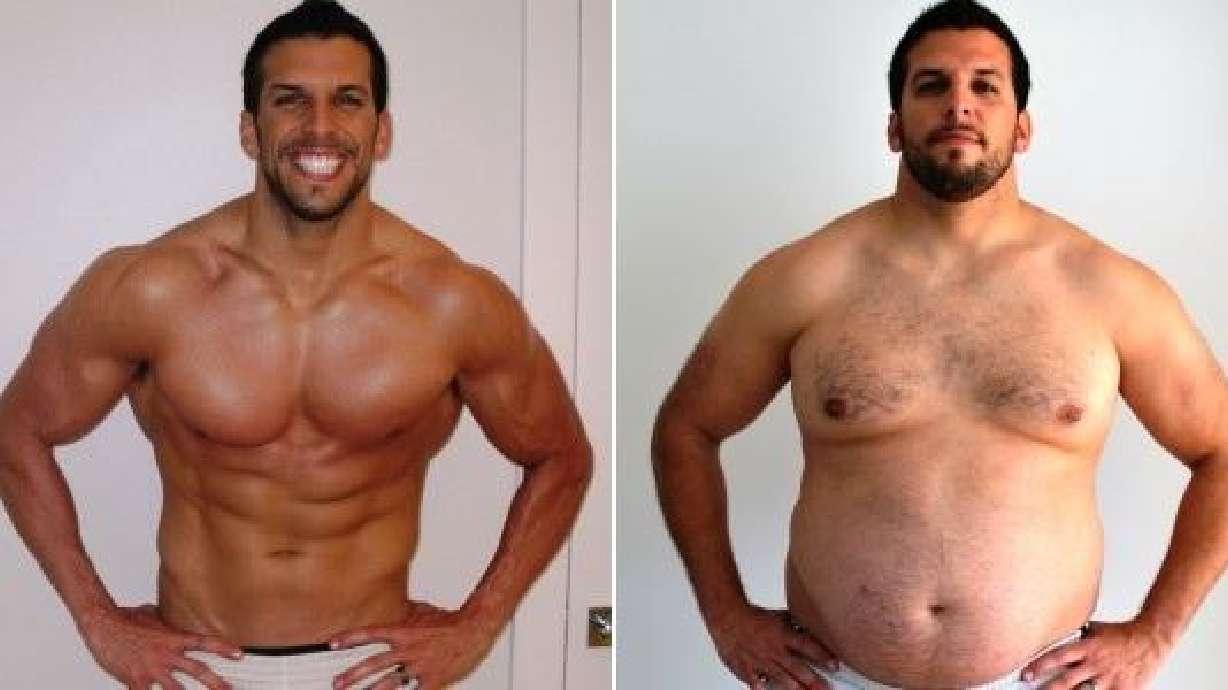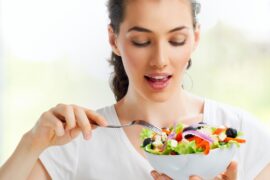Healthy Muscle Gain Food without Fat

Building muscle mass requires a balanced diet that provides adequate protein, carbohydrates, and healthy fats. While fats are often associated with weight gain, certain types of fats play a crucial role in hormone production, which is essential for muscle growth. Choosing muscle gain food without fat can help you achieve your goals while optimizing your nutrition.
Essential Fatty Acids
Omega-3 and omega-6 fatty acids are essential fats that the body cannot produce on its own. Found in foods such as fatty fish, nuts, and seeds, these fatty acids play a crucial role in hormone production, including testosterone and growth hormone. Incorporating muscle gain food without fat into your diet can help maximize muscle protein synthesis and growth, ensuring you build muscle effectively while maintaining a lean physique.
Mono unsaturated Fats
Monounsaturated fats are found in olive oil, avocados, and nuts. They help regulate cholesterol levels and improve insulin sensitivity, which is important for muscle growth. Insulin is a hormone that helps transport glucose into muscle cells, providing them with energy. Choosing muscle gain food without fat can complement these healthy fats, further supporting your fitness goals.
Saturated Fats
Saturated fats are found in animal products and some plant-based foods. While excessive consumption of saturated fats can increase cholesterol levels, moderate intake can support hormone production. Saturated fats are precursors to hormones like estrogen and progesterone, which play a role in muscle recovery and growth.
Dietary Sources of Healthy Fats
To incorporate healthy”Transform your body: Build muscle without gaining fat – effective workout strategies and nutrition tip”Discover how to build muscle without gaining fat with our expert tips on effective workouts and nutrition. Transform your physique while maintaining a lean body. Rea fats into your diet for muscle gain, consider the following food sources:
Fatty fish: Salmon, tuna, mackerel
Nuts: Almonds, walnuts, pecans
Seeds: Chia seeds, flaxseeds, pumpkin seeds
Olive oil: Extra virgin olive oil
Avocados: Whole avocados or avocado oil
Eggs: Whole eggs contain both saturated and unsaturated fats
Balancing Fat Intake
While healthy fats are essential for muscle growth, it is important to balance their intake with other macronutrients. Aim for a diet that provi approximately 20-30% of calories from fat. Excessive fat intake can lead to weight gain and other health issues.While healthy fats are essential for muscle growth, it is important to balance their intake with other macronutrients. Aim for a diet that provides approximately 20-30% of calories from fat, ensuring you include muscle gain food without fat as part of your meal planning. Excessive fat intake can lead to weight gain and other health issues.
Incorporating healthy fats into your diet is crucial for muscle gain. Essential fatty acids, monounsaturated fats, and saturated fats all play a role in hormone production, which is essential for muscle growth and recovery. By consuming these fats in moderation from whole food sources, you can support your muscle-building efforts without compromising your overall health.
Hydration and Recovery
Muscle Gain Food without Fat: Fueling Recovery and Hydration
Achieving muscle growth requires a balanced approach that includes both proper nutrition and hydration. While consuming sufficient protein is crucial for muscle repair and synthesis, it is equally important to avoid excessive fat intake that can hinder progress. This article explores food options that provide essential nutrients for muscle gain without contributing to unwanted weight gain.
Lean Protein Sources
Chicken breast, turkey breast, and fish are excellent sources of lean protein. They contain high amounts of amino acids, the building blocks of muscle tissue, while being low in fat. These proteins are easily digestible and provide a sustained release of amino acids throughout the day.
Plant-Based Protein Options
For those following a vegetarian or vegan diet, plant-based protein sources such as tofu, tempeh, and lentils offer a viable alternative. These foods are rich in protein and fiber, which promotes satiety and supports a healthy digestive system.
Complex Carbohydrates
Complex carbohydrates, such as brown rice, quinoa, and sweet potatoes, provide sustained energy for muscle recovery and growth. They are digested slowly, releasing glucose gradually into the bloodstream, preventing spikes in insulin levels that can lead to fat storage.
Fruits and Vegetables
Fruits and vegetables are essential for overall health and muscle recovery. They provide antioxidants, vitamins, and minerals that support muscle function and reduce inflammation. Berries, bananas, and leafy greens are particularly beneficial for muscle recovery.
Hydration
Adequate hydration is crucial for muscle recovery and growth. Water helps transport nutrients to muscles, lubricates joints, and regulates body temperature. Aim to consume eight glasses of water per day, especially after workouts.
Supplements
While a balanced diet can provide most of the nutrients needed for muscle gain, certain supplements can enhance recovery and support muscle growth. Creatine, a natural substance found in muscle cells, has been shown to increase muscle strength and power. Protein powder can also be beneficial for individuals who struggle to meet their protein requirements through diet alone.
Building muscle without gaining excess fat requires a strategic approach to nutrition and hydration. By incorporating lean protein sources, complex carbohydrates, fruits, vegetables, and adequate hydration into your diet, you can fuel muscle recovery and growth while maintaining a healthy weight. Remember to consult with a healthcare professional or registered dietitian for personalized advice and to ensure that your dietary plan aligns with your individual needs and goals.
Nutrient-Rich Fruits and Vegetables
Muscle Gain Food without Fat: Nutrient-Rich Fruits and Vegetables
Building muscle mass requires a balanced diet that provides ample protein and calories. However, it is crucial to avoid excessive fat intake, as this can hinder muscle growth and overall health. Fortunately, there are numerous nutrient-rich fruits and vegetables that can support muscle gain without adding unwanted fat.
Berries:
Berries, such as blueberries, raspberries, and strawberries, are packed with antioxidants that protect muscle cells from damage. They are also a good source of fiber, which promotes satiety and helps regulate blood sugar levels.
Citrus Fruits:
Citrus fruits, including oranges, grapefruits, and lemons, are rich in vitamin C, which is essential for collagen production. Collagen is a protein that provides structural support to muscles and connective tissues.
Leafy Greens:
Leafy greens, such as spinach, kale, and collard greens, are excellent sources of vitamins, minerals, and antioxidants. They are also low in calories and fat, making them ideal for muscle gain.
Cruciferous Vegetables:
Cruciferous vegetables, such as broccoli, cauliflower, and Brussels sprouts, contain sulforaphane, a compound that has been shown to promote muscle growth and reduce inflammation.
Avocados:
Avocados are a unique fruit that is high in healthy fats, including monounsaturated and polyunsaturated fats. These fats support hormone production and cell growth, which are essential for muscle development. Including avocados along with muscle gain food without fat in your diet can help optimize your nutrition for building muscle effectively.
Bananas:
Bananas are a good source of potassium, an electrolyte that helps regulate muscle function and prevent cramps. They also contain carbohydrates, providing energy for workouts and serving as a great option for muscle gain food without fat.
Apples:
Apples are a versatile fruit that is rich in fiber, antioxidants, and quercetin, a compound with anti-inflammatory properties. They can help reduce muscle soreness and promote recovery, making them a great addition to your diet alongside other muscle gain food without fat.
Incorporating Fruits and Vegetables into Your Diet:
To maximize the benefits of these nutrient-rich fruits and vegetables, aim to consume at least five servings per day. They can be enjoyed as snacks, added to salads, smoothies, or incorporated into main meals. Including these foods, along with options for muscle gain food without fat, helps support muscle growth, improve overall health, and achieve your fitness goals without compromising your waistline.
Complex Carbohydrates for Sustained Energy
Muscle Gain Food without Fat: Complex Carbohydrates for Sustained Energy
Building muscle requires a balanced diet that provides adequate protein, carbohydrates, and healthy fats, including options for muscle gain food without fat. This combination ensures you support muscle growth while managing your overall calorie intake effectively. While protein is essential for muscle growth, carbohydrates play a crucial role in fueling workouts and providing sustained energy. However, not all carbohydrates are created equal. Complex carbohydrates are the preferred choice for muscle gain food as they provide a slow and steady release of energy, unlike simple carbohydrates that cause spikes and crashes in blood sugar levels. By focusing on these carbs, you can support sustained energy levels for your workouts and overall muscle growth.
Complex carbohydrates are found in whole grains, legumes, fruits, and vegetables. They are rich in fiber, which helps regulate digestion and promotes satiety. Including muscle gain food without fat alongside these complex carbohydrates can further support your energy needs, as fiber slows down the absorption of carbohydrates, preventing blood sugar spikes and providing a sustained source of energy.
Whole grains, such as brown rice, quinoa, and oatmeal, are excellent sources of complex carbohydrates. They are also packed with vitamins, minerals, and antioxidants. Legumes, including beans, lentils, and chickpeas, are another great option. They are high in protein, fiber, and iron.
Fruits and vegetables are also important sources of complex carbohydrates. They are low in calories and fat, and they provide a wide range of vitamins, minerals, and antioxidants. Fruits like bananas, apples, and berries are good sources of carbohydrates, while vegetables like sweet potatoes, carrots, and broccoli are also rich in fiber.
Incorporating complex carbohydrates into your diet is essential for muscle gain food without fat. They provide sustained energy, regulate blood sugar levels, and promote satiety. By choosing whole grains, legumes, fruits, and vegetables, you can fuel your workouts and support muscle growth effectively.
Here are some tips for incorporating complex carbohydrates into your diet:
Choose whole grains over refined grains.
Include legumes in your meals at least once a day.
Eat fruits and vegetables with every meal.
Limit your intake of processed foods and sugary drinks.
By following these tips, you can ensure that you are getting the complex carbohydrates you need to build muscle and incorporate muscle gain food without fat to achieve your fitness goals.
Lean Protein Sources for Muscle Growth
Lean Protein Sources for Muscle Growth
Building muscle requires an adequate intake of protein, but it’s crucial to choose lean sources to avoid excess fat consumption. Opting for muscle gain food without fat can help you achieve this balance. Here are some excellent lean protein options for muscle growth:
Chicken Breast:
Chicken breast is a classic lean protein source, providing approximately 27 grams of protein per 100 grams. It’s low in fat and calories, making it an ideal choice for those seeking muscle gain without fat while avoiding unwanted weight.
Fish:
Fish, such as salmon, tuna, and cod, are excellent sources of lean protein and omega-3 fatty acids. Omega-3s have anti-inflammatory properties that can support muscle recovery and growth, making these fish a great option alongside other muscle gain food without fat in your diet.
Lean Beef:
Lean beef, such as sirloin or flank steak, provides a substantial amount of protein (approximately 25 grams per 100 grams) and is rich in iron, which is essential for oxygen transport to muscles.
Greek Yogurt:
Greek yogurt is a high-protein dairy product that contains approximately 20 grams of protein per cup. It’s also a good source of calcium and probiotics, which support gut health.
Cottage Cheese:
Cottage cheese is another dairy product that is high in protein (approximately 28 grams per cup). It’s a versatile food that can be incorporated into various dishes, such as salads, smoothies, and dips.
Beans and Lentils:
Beans and lentils are plant-based protein sources that are also rich in fiber, making them excellent choices for muscle gain food without fat. They provide sustained energy and support muscle growth effectively.
Tofu and Tempeh:
Tofu and tempeh are soy-based protein sources that are low in fat and high in protein. They are excellent options for vegetarians and vegans seeking to build muscle.
Protein Powders:
Protein powders, such as whey protein or casein protein, can be a convenient way to supplement protein intake and support muscle gain food without fat. However, it’s important to choose high-quality powders and consume them in moderation to maintain a balanced diet.
Conclusion
Incorporating these lean protein sources into your diet can help you achieve your muscle-building goals while focusing on muscle gain food without fat. Remember to combine protein intake with regular exercise and adequate rest to maximize muscle growth.





